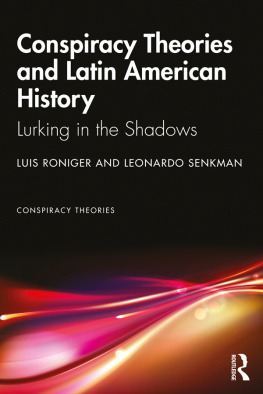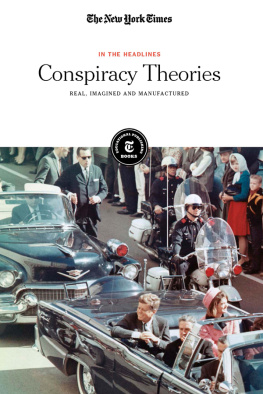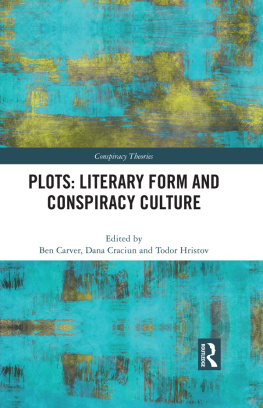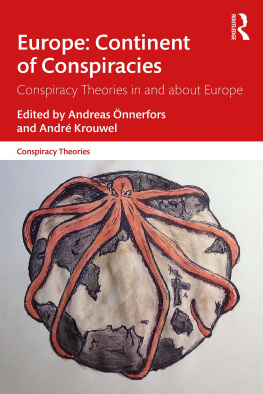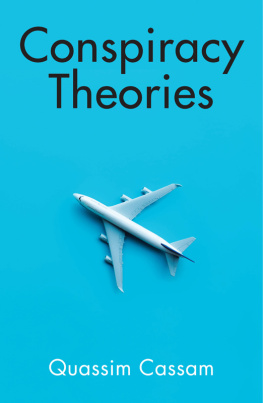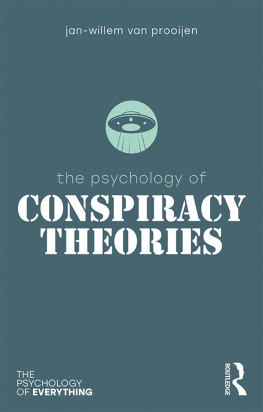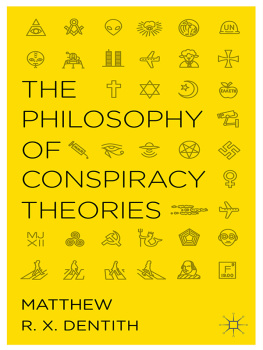This book is a publication of
Indiana University Press
601 North Morton Street
Bloomington, Indiana 47404-3797 USA
http://iupress.indiana.edu
Telephone orders 800-842-6796
Fax orders 812-855-7931
Orders by email iuporder@indiana.edu
2008 by Indiana University Press
All rights reserved
No part of this book may be reproduced or utilized in any form or by any means, electronic or mechanical, including photocopying and recording, or by any information storage and retrieval system, without permission in writing from the publisher. The Association of American University Presses Resolution on Permissions constitutes the only exception to this prohibition.
The paper used in this publication meets the minimum requirements of American National Standard for Information SciencesPermanence of Paper for Printed Library Materials, ANSI Z39.48-1984.
Manufactured in the United States of America
Library of Congress Cataloging-in-Publication Data
Political conspiracies in America: a reader / edited by Donald T.
Critchlow, John Korasick, and Matthew C. Sherman.
p. cm.
Includes bibliographical references and index.
ISBN-13: 978-0-253-35079-4 (cloth: alk. paper)
ISBN-13: 978-0-253-21964-0 (paper: alk. paper) 1. Conspiracies United StatesHistorySources. 2. United StatesPolitics and governmentSources. I. Critchlow, Donald T., date II. Korasick, John. III. Sherman, Matthew C.
E183.P65 2008
364.1300973dc22
2007038024
1 2 3 4 5 13 12 11 10 09 08
Democratic governance in the United States is premised on the belief that the political universe is rational and that an open society is essential to the preservation of democracy. Free speech and a free press help to protect democracy from subversive agents who would seek to usurp power and destroy the system. Democracies strike a careful balance in protecting rights essential to political dissent while instituting anti-subversive measures necessary to preserve democratic society itself. Although this balance has not always been maintained, ultimately democratic government rests on the trust of the people in their public officials. Fear of conspiracy manifests mistrust in political leadership and in its ability to maintain order because it has been corrupted by subversive forces. Given the continued persistence of alleged conspiracies in American history, from the colonies first settlement until today, the American democratic regime has shown remarkable endurance.
Political conspiracy is a secret and illegal agreement to undertake unlawful or wrongful acts to affect the political system. The Plot of Brutus and his brother-in-law Cassius to assassinate Julius Caesar on March 15, 44 BCE, was a conspiracy. In American history, the Aaron Burr conspiracy (180507) involved a plot to remove the western territories and the Louisiana Purchase from the United States. The plot by financiers Jay Gould and James Fisk to corner the gold market, based on inside information provided by President Ulysses Grants brother-in-law Abel Corbin and Assistant Secretary of the Treasury General Daniel Butterfield in 1869, was a financial conspiracy involving people high in government. In the twentieth century, the infiltration of Soviet spies into the U.S. government during the Franklin Roosevelt administration was a political conspiracy conducted behind closed doors within the Kremlin to illegally obtain American secrets.
While these and other examples can be found throughout history, most political conspiracies have been imagined. Those who promulgate such conspiracies present a fantastic view of the world in which a small group of men and women, operating secretly, can dictate world events with improbable exactitude. Conspiracy theorists believe that the hidden history behind such conspiracies is revealed only through close study and deciphering of apparently random events. Having attained this knowledge, conspiracy theorists believe they have an obligation to warn their fellow citizens of the dark, subversive forces operating in secret. They employ a conspiracy language that allows ideological groups to convey shared worldviews. When an American conspiracist speaks disparagingly of Rome or the New World Order or the Bilderbergers, for example, those who share the speakers political outlook understand the full implications of the reference. As such, the language of conspiracy encapsulates larger presumptions about the world and how it operates, and code words become a tool to rally followers and to gain new recruits to specific political positions on both ends of the political spectrum.
In this way there is at times but a thin line between irrational and rational fears. Indeed, the extent of conspiratorial fears within the history of western democracies, especially the United States, seems to belie political rationality. Conspiratorial fears were evident among the first settlers in New England, the Puritans and the Pilgrims, in their conviction that high officials in the Church of England were intent on betraying the Protestant Reformation and returning to the practices and theology of Roman Catholicism, with its promotion of idolatry, superstition, ignorance, and hierarchical corruption. Fears of conspiracy abounded throughout colonial America, as seen in relations with Native Americans, the Salem witch trials, repression of religious dissent, and relations with the mother country. Historian Bernard Bailyn, in The Ideological Origins of the American Revolution, argued that the fear of a conspiracyone that reached into the highest circles of the kings courtto subvert the liberties of a free people was central to the ideology of the American revolutionaries. As such, rational Enlightenment thought combined with an irrational fear of conspiracy to produce American republican ideology.
Conspiracy plays other roles in politics as well. Conspiratorial worldviews, for those who subscribe to them, have extrinsic value by rationalizing the world, even though these worldviews might be intrinsically irrational. Furthermore, to have value, conspiracy beliefs must appear to be substantiated. Thus conspiracists spend an inordinate amount of time discovering and mastering evidence to substantiate their views. This allows conspiracy believers to present themselves as scholars of a different sort, autodidacts who know better than the experts. In this way, conspiracy offers a mechanism for citizens to acquire and sort confusing and complex political, economic, and social information into a carefully filtered construction of the world. Conspiracy provides a narrative for understanding how the world is ordered. At the same time, conspiracy enhances the self-esteem of the believer by imparting secret and hidden knowledge that the rest of the polity does not know. As a result, believers in conspiracy find power, but of a certain type: subversive power. It expresses, quite often, the desire of the weak or those seeking further power to exert power through their unique knowledge and understanding of the world. Further, conspiracy provides a bonding experience for believers, a sense of community of shared intimate and personal information. This community experience is especially important in times of social change, when conspiracy theories seem to become most prominent. And, finally, among its myriad of roles, conspiracy theories allow people to isolate others, those groups or people who are categorized as unhealthy or corrupting influences on the general population.

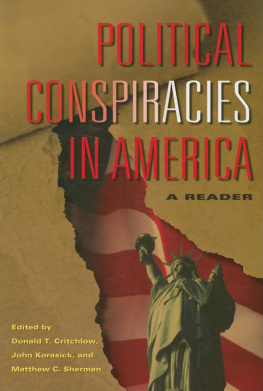
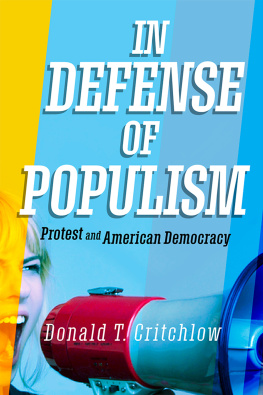
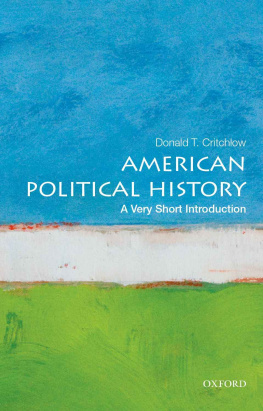
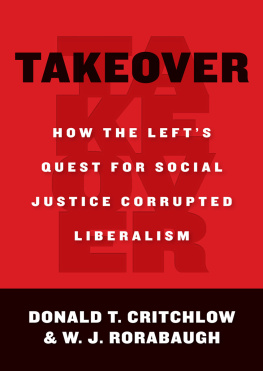

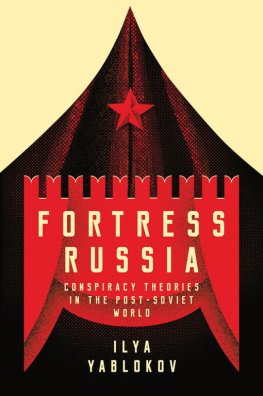
![Christopher R. Fee - Conspiracies and Conspiracy Theories in American History [2 Volumes]](/uploads/posts/book/429085/thumbs/christopher-r-fee-conspiracies-and-conspiracy.jpg)
